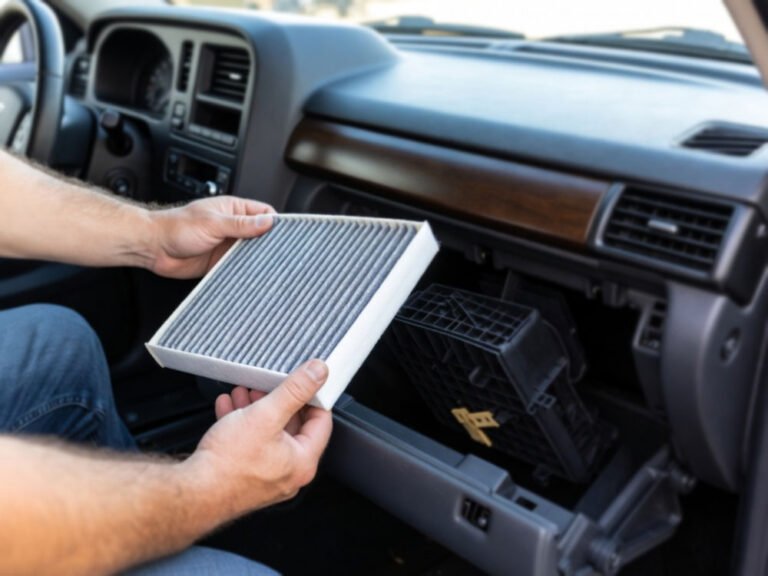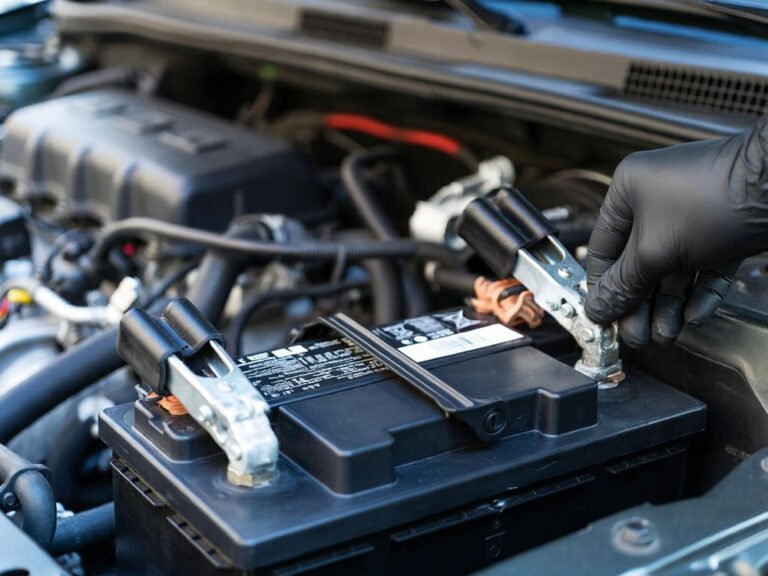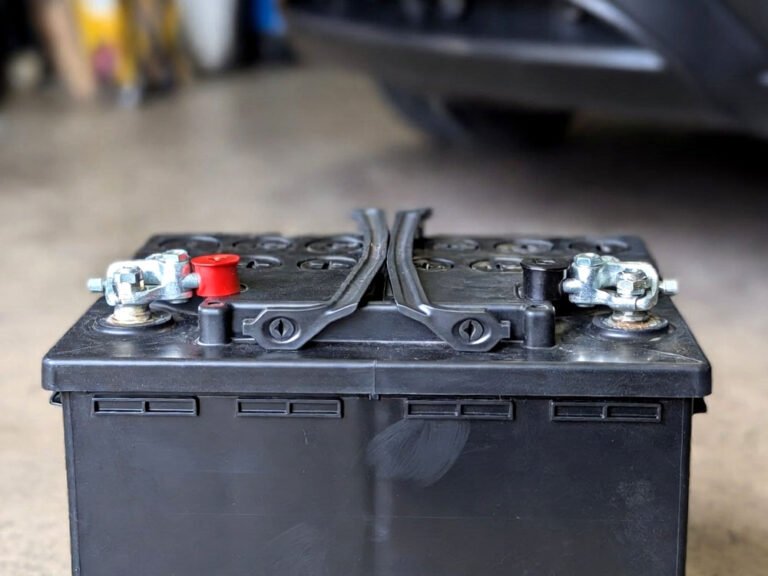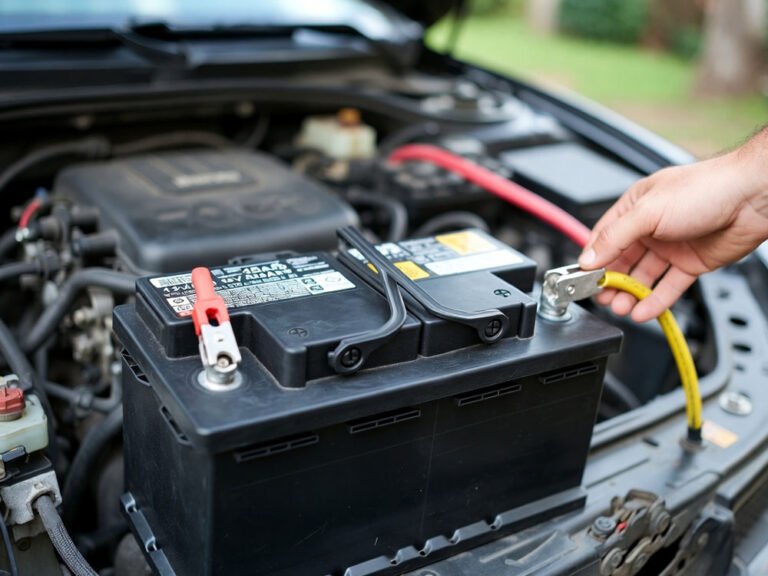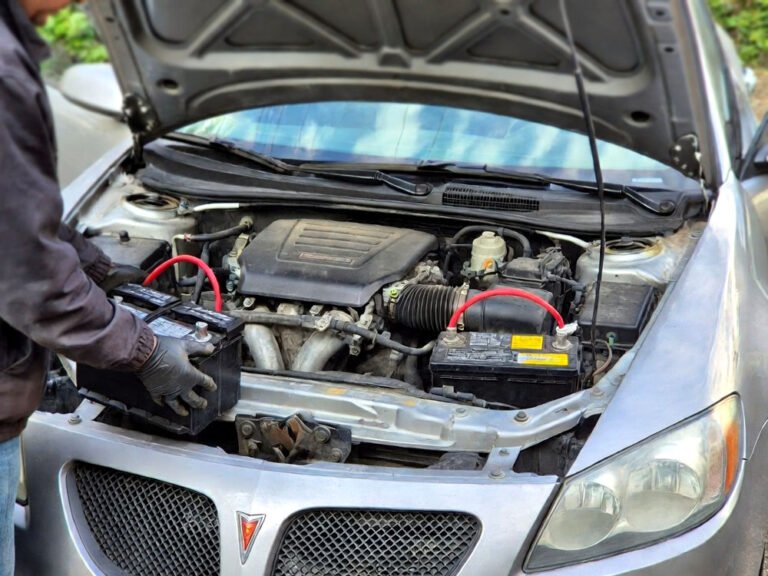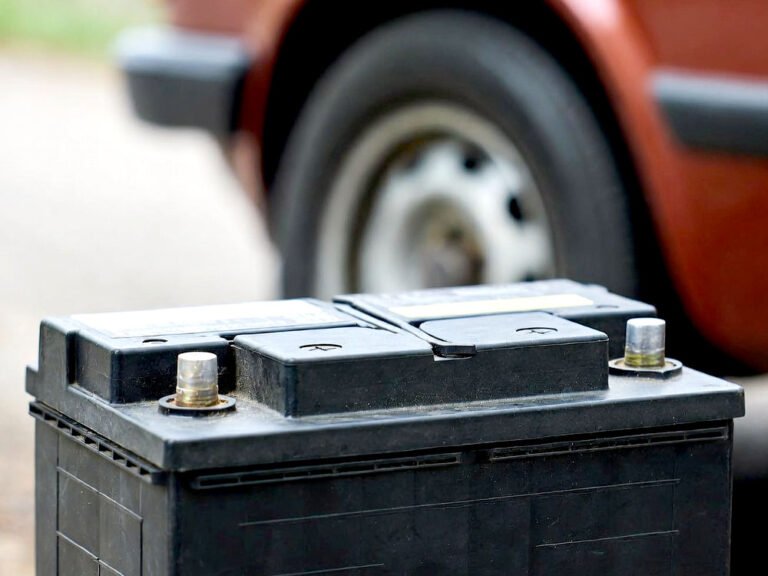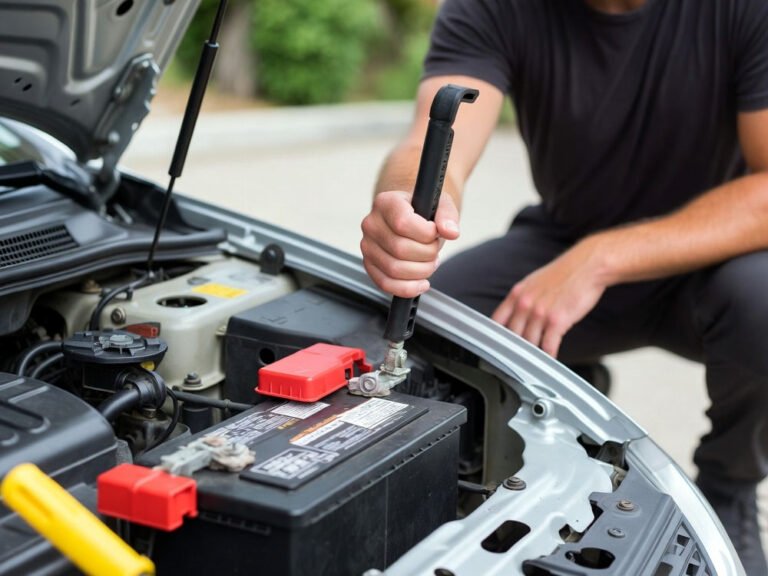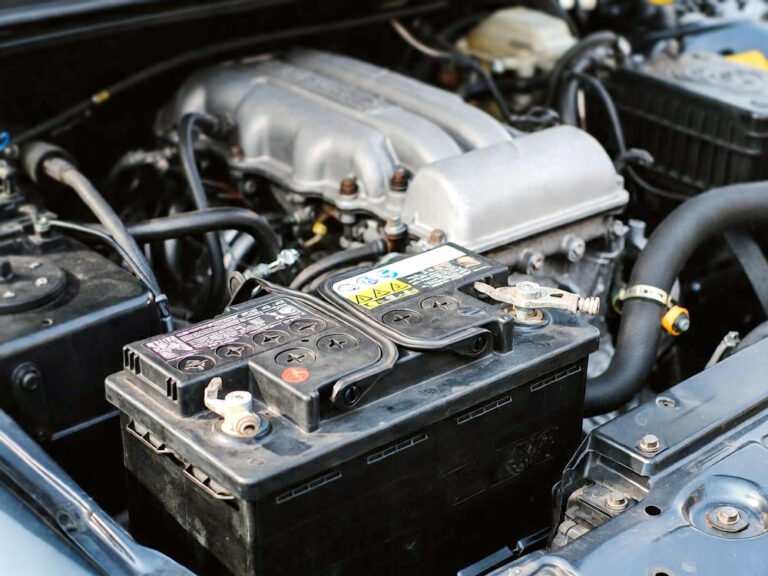You might have felt something strange when driving, like a weird noise from your car’s wheels. You wonder, “What does a bad wheel bearing sound like?” You are not alone. Many people hear this noise but don’t know what it means or what to do. The truth is, a bad wheel bearing usually makes a humming, growling, or grinding noise that gets louder when you speed up or turn. In this article, you will learn how to listen carefully, spot the signs, and understand why fixing it fast can save you from big trouble.
How to Listen for the Noise of a Bad Wheel Bearing
The first thing you need to do is to pay close attention to the sounds your car makes when you drive. A bad wheel bearing often sounds like a low humming or growling noise. Imagine a deep, steady sound that changes as you drive faster or slower.
Sometimes it sounds like a grinding metal or a rough rumble. This noise usually comes from one side of the car near the wheels. You may hear it when you drive straight, but it might get louder when you turn, especially if the bad bearing is on the side you turn towards.
Try to drive your car in a quiet place where you can clearly hear the noise. Roll down your windows and listen carefully. If you hear a soft humming or rumbling that changes with speed, this could be the wheel bearing. When the noise gets louder as you speed up, it means the bearing is wearing out more and more.
Sometimes, the noise may feel like it’s coming from the tires, but it is really from the wheel bearing. This is because the wheel bearing supports the wheel’s rotation and when it is damaged, it makes sounds as the wheel turns. Another way to check is to gently tap the brakes or change direction while driving; if the noise changes or stops for a moment, it is a strong sign of a bad bearing.
- A bad wheel bearing makes humming, growling, or grinding noises.
- The noise gets louder when you speed up or turn.
- It often comes from one side of the car near the wheels.
- Rolling down windows in a quiet place helps hear the noise better.
- Changing direction or tapping brakes may change the noise.
Why a Bad Wheel Bearing Makes Noise and What Happens Inside
Inside each wheel of your car, there is a wheel bearing that helps the wheel spin smoothly. This wheel bearing is made of small metal balls or rollers inside a ring called a race. When the wheel turns, the bearing spins with it without much friction, so the ride is smooth and quiet.
But over time, dirt, water, or lack of oil can damage the wheel bearing. When this happens, the metal balls or rollers can get rough or break. The smooth surface inside the race can also get scratched or worn down. This causes the bearing to make noise because the parts are rubbing and grinding against each other.
The noise from a bad bearing is a warning that the bearing is not working well anymore. If ignored, the bearing can get worse, and the wheel may wobble or even come off while driving. This is very dangerous because it can cause a car accident. A damaged bearing also puts extra stress on other parts like the tires and suspension, which can cause more damage and cost more money to fix.
The heat inside the bearing also increases as it wears out. This can cause the metal parts to expand and damage the seal that keeps grease inside. Without grease, the bearing wears out faster and the noise becomes louder. The longer you wait, the more serious the damage becomes.
- Wheel bearings help wheels spin smoothly using metal balls or rollers.
- Dirt, water, and lack of grease cause the bearing to wear out.
- Worn parts rub and grind, making noise.
- A bad bearing can cause the wheel to wobble or fail.
- Heat and damaged seals speed up the wear and noise.
How to Check Your Car for a Bad Wheel Bearing at Home
You don’t need to be a car expert to check if your wheel bearing is bad. There are simple things you can do at home to find out. First, park your car on a flat surface and make sure it is safe. You may want to use wheel chocks or blocks to stop the car from moving.
Next, try to lift the car with a jack so you can hold the wheel in the air. Make sure the car is supported safely on jack stands. Now, grab the wheel with both hands and try to move it back and forth and up and down. If the wheel feels loose or wobbles a lot, it may be because the wheel bearing is worn out.
You can also spin the wheel by hand. If you hear grinding, clicking, or rough sounds when you spin it, this is a sign the bearing is damaged. The wheel should spin smoothly and quietly without any noise.
Another way is to listen while driving. When you hear a humming or growling noise, try to gently press on the brakes or turn the steering wheel left and right. If the noise changes or stops, the wheel bearing on the side you turned is likely bad.
Lastly, if you feel vibrations or your car pulls to one side, this might also mean the bearing is bad. But these signs can also come from other parts, so checking the wheel’s movement and sound at home helps confirm the problem.
- Lift the car safely and check for wheel wobble.
- Spin the wheel by hand and listen for rough noises.
- Listen for humming noise while driving, change brakes and turns.
- Feel for vibrations or pulling while driving.
- These checks help confirm if the bearing is bad.
What Happens if You Ignore the Noise from a Bad Wheel Bearing
Ignoring the strange sounds from your wheel can cause big problems later. At first, the noise might be small and only happen sometimes. But as the wheel bearing wears out more, the noise gets louder and happens all the time. If you don’t fix it, the bearing can fail completely.
When a wheel bearing fails, the wheel may start to wobble or feel loose. This can make your car hard to control. If the bearing breaks while driving, the wheel could even fall off. This is very dangerous for you and other drivers on the road.
Besides safety, a bad wheel bearing can damage other parts of your car. The wheel hub, brakes, and tires can all get damaged because they have to work harder. This means repairs will cost much more money than just fixing the bearing early.
Also, a bad wheel bearing can cause your car to use more fuel. When parts don’t work well, the engine needs to work harder. This means you will spend more money on gas. So, fixing the bearing early saves money and keeps you safe.
- Ignoring noise causes louder sounds and constant problems.
- A bad bearing can cause the wheel to wobble or fall off.
- It makes your car harder to control, which is unsafe.
- Other parts like brakes and tires can get damaged.
- It increases fuel use and repair costs.
How Professionals Fix a Bad Wheel Bearing
When you take your car to a mechanic for a bad wheel bearing, they will first check the noise and test the wheel. If they find the bearing is bad, they will replace it because bearings cannot be fixed once damaged.
The mechanic will lift your car and remove the wheel and brake parts to reach the wheel bearing. Then, they will take out the old bearing carefully. Sometimes, the bearing is pressed tightly into the hub, so special tools are needed to remove it.
After removing the bad bearing, the mechanic cleans the area and installs a new bearing. The new bearing usually comes already packed with grease. If not, the mechanic will add grease to help it spin smoothly.
Once the new bearing is in place, the mechanic puts back the brakes, wheel, and lowers the car. They will also test drive your car to make sure the noise is gone and everything works well.
Replacing a wheel bearing is a job for trained professionals because it needs special tools and knowledge. Trying to fix it yourself without experience can make the problem worse or cause injury.
- Mechanics test and confirm the bad wheel bearing.
- They remove the wheel, brakes, and old bearing.
- Special tools help remove the tight bearing.
- A new bearing with grease is installed carefully.
- They reassemble parts and test the car after repair.
Tips to Prevent Wheel Bearing Problems
The best way to avoid a bad wheel bearing is to take good care of your car. Regular maintenance and careful driving help keep your bearings healthy for a long time.
Always check your tires and wheels often. Make sure they are clean and free from dirt and water. Dirt and water can cause the bearings to rust and wear out faster.
Keep your car’s suspension and brakes in good shape because they work closely with the wheels. Damaged brakes or suspension can put extra pressure on the bearings.
Try not to hit curbs or potholes hard because this can damage the wheel bearings. Drive carefully on rough roads and avoid sharp turns or sudden stops when possible.
Have your mechanic check your wheel bearings during regular service visits. They can spot small problems before they become big and costly.
Lastly, if you notice any noise, vibration, or wobble from your wheels, don’t wait. Get your car checked immediately to prevent bigger trouble.
- Keep wheels clean and dry to prevent rust.
- Maintain brakes and suspension well.
- Avoid hitting curbs and potholes hard.
- Drive carefully on rough roads.
- Get wheel bearings checked regularly.
- Fix any noise or wobble immediately.
Final Thoughts
Listening carefully to your car can save you a lot of trouble. A bad wheel bearing makes humming, growling, or grinding noises that get louder when driving faster or turning. Checking your wheels for wobble and rough sounds can help catch problems early. Ignoring these signs can cause dangerous driving conditions and costly repairs. Always trust professionals to fix bearings and take good care of your wheels. With simple care and attention, you can avoid wheel bearing problems and enjoy a safe, smooth ride.
Frequently Asked Questions (FAQs)
Is it normal for a wheel bearing to make noise when driving?
It is not normal for a wheel bearing to make noise. A good wheel bearing should be quiet and smooth. If you hear humming, grinding, or growling sounds from your wheels, it means the bearing might be worn out or damaged. This noise often gets louder when you speed up or turn. If you notice this, you should have your car checked right away. Ignoring this noise can cause bigger problems and safety risks.
Can a bad wheel bearing cause vibrations in my car?
Yes, a bad wheel bearing can cause vibrations. When the bearing wears out, it makes the wheel wobble or shake. This wobble can be felt through the steering wheel or the whole car, especially at higher speeds. Vibrations from a bad bearing are usually different from those caused by unbalanced tires. If you feel unusual shaking or vibrations while driving, it’s important to check your wheel bearings and other parts.
Do I need to replace the wheel bearing immediately after hearing noise?
You should not wait long to replace a bad wheel bearing once you hear noise. The noise means the bearing is already damaged and will get worse. Delaying repairs can cause the wheel to become loose or fail, which is dangerous. It can also damage other parts and increase repair costs. Getting your wheel bearing fixed as soon as possible is the safest and cheapest choice.
Is it safe to drive with a bad wheel bearing?
Driving with a bad wheel bearing is risky. The bearing supports the wheel, so if it fails, your wheel can wobble, pull to one side, or even fall off. This can cause loss of control and accidents. While you may still drive a short distance with a noisy bearing, it is best to avoid driving unless you are going to a mechanic immediately. Safety should always come first.
Can I check a bad wheel bearing without lifting my car?
It is harder to check a wheel bearing without lifting your car because you need to feel if the wheel is loose or listen to noise when spinning. However, you can still listen for humming or grinding noises while driving, especially when turning or changing speed. You can also notice vibrations or pulling. For a full check, lifting the car is best, but you can look for signs while driving too.
Do I need special tools to replace a wheel bearing?
Yes, replacing a wheel bearing usually needs special tools. The bearing is often pressed tightly into the hub and needs a press tool to remove and install it correctly. Mechanics have these tools and the experience to do the job safely and right. Trying to replace a bearing without the right tools can damage your car or cause injury.
Can wheel bearings fail suddenly?
Wheel bearings usually wear out gradually, but they can fail suddenly if damaged badly by an accident or hitting a big pothole. A sudden failure can cause loud noise, wheel wobble, or even the wheel coming off. This sudden failure is dangerous, so it’s important to fix bearings as soon as you notice problems to prevent sudden failure.
Is it expensive to fix a bad wheel bearing?
Fixing a bad wheel bearing costs money but it depends on your car model and where you live. Usually, replacing a wheel bearing includes parts and labor. It can cost more if other parts are damaged too. However, fixing it early is cheaper than waiting and causing more damage. Regular maintenance helps prevent expensive repairs.


